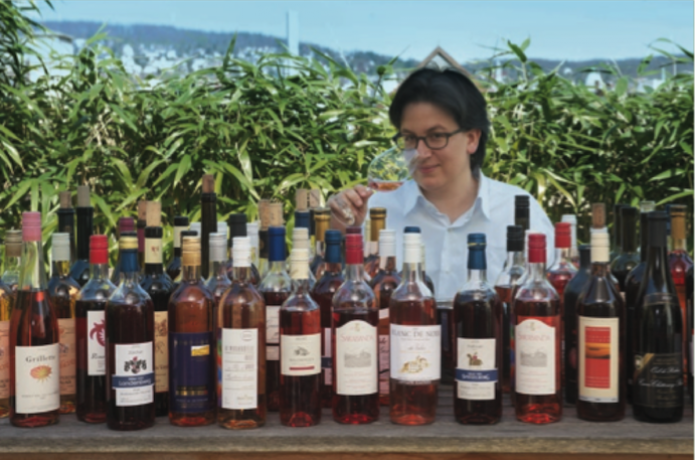Don't forget about the rosé!
- Tuesday 01 July 2008
Chandra's cooking with wine
Often overshadowed by red and white wines, rosé wines deserve a better reputation. Chandra Kurt has just tasted around 100 of them, in her efforts to understand current Swiss production.
I readily admit that I have very few rosé wines in my wine cupboard. Yet I do keep a half-dozen bottles at hand, so that when the mood takes me, I can always enjoy a small glass of rosé as an apéritif or to quench my thirst when I'm cooking. On these occasions, I tend to prefer rosé to white.
When I wrote my book "Drink Pink" (www.mediagene.ch/cms/drinkpink.phtml) a few years ago, it got a rather lukewarm reaction from my colleagues, who visibly seemed not to envy me at all for the opportunity to taste many different rosés. I didn't really understand their attitude, as I've always found a well-produced rosé to be a true delight. It's also interesting to note that more rosés come to market than red or white wines, showing a vitality that can't be ignored.
All-purpose wines
Rosés are particularly appreciated in cooking as they work well with nearly all dishes, particularly with Asian cuisine. A lively, fruity rosé based on Merlot or Pinot Noir, for example, is great with a curry or Thai food.
Rosé also goes well with all sorts of starters, fish, tapas and antipasti. Its lightness also balances heartier food such as black pudding and lardons. It's a mistake to think that today's rosés are limited to sweet, low-alcohol apéritifs. The number of aromatic and complex rosé wines has definitely increased in recent years.
Opening and tasting
How long can a bottle of rosé be kept after opening? Well, that all depends on the complexity of the wine. Light rosés and most white wines generally only keep for a day. So the best thing is to recork the bottle and put it in the fridge. Stronger and more complex vintages can, however, be kept in the fridge for two days with no problem. Generally, rosés are still among the wines with the shortest shelf life. I've often found that after being opened, they almost never change for the better. So when you open a bottle, I advise that you finish it.
As rosés have few tannins, they don't mature well for long. So it's better to drink them within three years. Generally, the rule is: the shorter the time between harvesting and sale, the more quickly the wine should be drunk.




